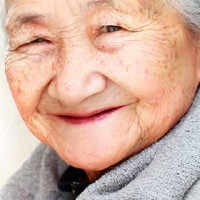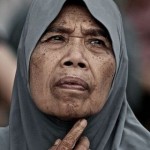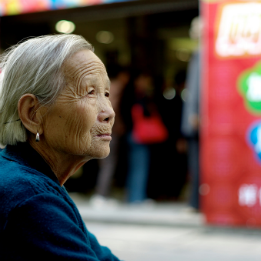-
Advocacy Theme
-
Tags
- Abortion
- Adoption
- Caregiving
- CEDAW
- Disability
- Domestic Violence
- Domestic Workers
- Harassment
- Healthcare
- Housing
- International/Regional Work
- Maintenance
- Media
- Migrant Spouses
- Migrant Workers
- Muslim Law
- National budget
- Parental Leave
- Parenthood
- Polygamy
- Population
- Race and religion
- Sexual Violence
- Sexuality Education
- Single Parents
- Social Support
- Sterilisation
- Women's Charter
The health of older women matters!
April 8th, 2013 | Letters and op-eds, News, Older People and Caregiving, Sexual and Reproductive Health, Views
By Rachel Pullen, Vivienne Wee and Nadzirah Samsudin
Is it possible that gender stereotyping leads to social neglect of older women’s health? Is it also possible that some of the older women internalise such gender stereotypes, leading them not to prioritise their own health? When they do choose to attend to their health needs, do they experience any economic hindrance?
 The World Health Organisation marks 7 April as World Health Day. The focus this year is on the identification and treatment of high blood pressure (hypertension). Worldwide, figures indicate that above the age of 60, more women than men are likely to suffer from high blood pressure. The reverse is true at younger ages.
The World Health Organisation marks 7 April as World Health Day. The focus this year is on the identification and treatment of high blood pressure (hypertension). Worldwide, figures indicate that above the age of 60, more women than men are likely to suffer from high blood pressure. The reverse is true at younger ages.
A 2005 survey of Singaporeans aged over 55 shows that women have a higher rate of hypertension than men in this age group. The Singapore Heart Foundation (2011) also shows a higher rate of death due to cerebro-vascular disease in women than in men.
Hypertension is easily diagnosed and treated, yet WHO statistics show that worldwide, more than 1 in 3 adults have hypertension, resulting in more than 9 million deaths annually.
A local study shows that as many as 70 per cent of older Singaporeans have hypertension. Of these, 30 per cent were unaware of their condition and 30 per cent were not being treated. The difficulty often lies in identifying the problem, as hypertension may be asymptomatic and only picked up by chance or on routine screening. Untreated hypertension can lead to stroke, heart attack, kidney disease, visual problems and blindness. A 2010 study published in the Annals Academy of Medicine Singapore reports that among low-income residents in Taman Jurong Constituency, the top reason given for non-participation in regular health screenings was that it is ‘too expensive’, although this is not disaggregated based on gender. Nevertheless, more females than males are not regularly screened for hypertension. Screening packages can cost from $300 upwards, with use of Medisave available only for mammograms or colonoscopies.
 Is it possible that gender stereotyping leads to social neglect of older women’s health? Is it also possible that some of the older women internalise such gender stereotypes, leading them not to prioritise their own health? When they do choose to attend to their health needs, do they experience any economic hindrance?
Is it possible that gender stereotyping leads to social neglect of older women’s health? Is it also possible that some of the older women internalise such gender stereotypes, leading them not to prioritise their own health? When they do choose to attend to their health needs, do they experience any economic hindrance?
Women’s health issues are often defined in terms of fertility and reproductive health – a bias that leads to neglect of women past the age of fertility. However, heart disease is the leading cause of death in women. According to Singapore’s National University Heart Centre, cardiovascular disease claims the lives of eight times more women than breast cancer does in Singapore. Renal failure is another health problem arising from hypertension that affects many older women. In 2006, it was reported that half of the number of Singaporeans with end-stage renal disease were over the age of 60.
Apart from increasing age, lower socio-economic status and obesity are also correlated with raised blood pressure. Data from 2005 show that for women aged 55 and above, less than half had their own income, as compared to three-quarters of men in the same age group. Statistics also show that only about 7 percent of elderly women have Medisave, with more women (65%) than men (44%) relying on their children’s Medisave. Furthermore, those above the age of 90 are not covered by Medishield, despite rising life expectancy.
An analysis of healthy life expectancy in 187 countries reveals that while female life expectancy in Singapore in 2010 is 83.3, 13.3 years were spent in ill health. In contrast, male life expectancy in Singapore in 2010 is 78.8, with 10.7 years in ill health.
 Women are often seen as primary caregivers. The Ministry of Manpower reported that 68 percent of women who are not in the workforce identify caregiving responsibilities as the reason for not doing paid work. Consequently, they do not have enough Medisave to fund their healthcare costs, a situation that deters women from seeking medical attention, especially for hypertension, which needs long-term treatment.
Women are often seen as primary caregivers. The Ministry of Manpower reported that 68 percent of women who are not in the workforce identify caregiving responsibilities as the reason for not doing paid work. Consequently, they do not have enough Medisave to fund their healthcare costs, a situation that deters women from seeking medical attention, especially for hypertension, which needs long-term treatment.
The prevalence of hypertension within the community underscores the importance of early detection. AWARE is heartened by the efforts of the Health Promotion Board (HPB) and the Singapore Heart Foundation (SHF) in increasing its community outreach. SHF’s Go Red for Women campaign encourages women to take charge of their heart health, while HPB reaches out to the elderly and encourages them to have regular health checks. Significantly, HPB’s one-stop functional screening programme led to a fourfold post-screening follow-up rate in 2011.
More attention needs to be given to older women’s health, especially those with lower incomes. The health of older women is linked crucially to the health of their families. A healthy older woman is a contributing member of family and society. But an older woman who has suffered a stroke or a heart attack needs care to be given by younger family members, mostly women.
 As Singapore evolves into an increasingly inclusive society, we need to realise our interconnected well-being. No one’s health should be treated as expendable on the basis of age, gender, class, ethnicity or any other marker of difference.
As Singapore evolves into an increasingly inclusive society, we need to realise our interconnected well-being. No one’s health should be treated as expendable on the basis of age, gender, class, ethnicity or any other marker of difference.
Rachel Pullen is a volunteer at AWARE. Vivienne Wee is the Research and Advocacy Director at AWARE. Nadzirah Samsudin is the Research and Advocacy Executive at AWARE. A shorter version of this article was first published in TODAY on 8 April 2013 (no longer online).



